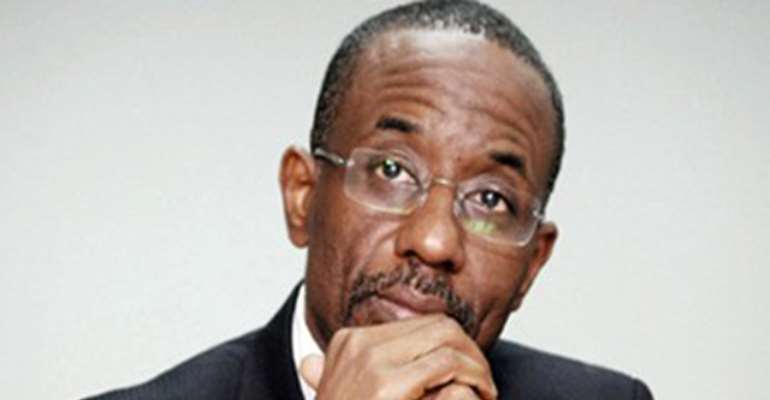CBN expected to retain rate at 12 per cent as MPC meets

Central Bank of Nigeria is expected to leave the benchmark rate unchanged at 12 per cent despite deceleration in inflation rate.
The inflation rate fell to 7.8 percent in October from 8 per cent in the previous month greatly helped by easing food prices, according to the National Bureau of Statistics.
But analysts believe that the apex bank may not shift the benchmark rate which it has held constant since October 2011.
Analysts at Meristem Securities holds that view. 'We analyze our position based on the current breather in the global space, the slowing. But strong domestic growth, the moderating price levels, recent stability of the
exchange rate, current fiscal happenings and the state of the capital market. All in
all, our balance of analysis suggests that the Monetary Policy Committee will most
likely retain the MPR at 12% level,' the analysts said.
The inflation rate fell to 7.8 percent in October from 8 per cent in the previous month greatly helped by easing food prices, according to the National Bureau of Statistics.
Also, economists surveyed by Bloomberg asserted that the Monetary Policy Committee, led by Governor Lamido Sanusi, will keep the rate at 12 percent.
'I would expect the CBN to keep its policy rate unchanged,' said Gaimin Nonyane, senior macroeconomics specialist in London at EBI SA, a unit of Ecobank Group, said in an e-mailed reply to questions. 'The probability of a rate cut is also low given growing potential for fiscal slippage amid weakening oil revenue and expenditure overruns ahead of the 2015 general election.'
The inflation rate fell to 7.8 percent in October from 8 percent in the previous month as food prices eased, according to the Abuja-based National Bureau of Statistics. Prices rose 0.8 percent in the month.
Nigeria relies on oil for about 80 percent of government revenue and 95 percent of export income. The price of crude has slumped 12 percent in New York in the past four months and was trading as low as $93.63 a barrel on Nov. 15.
President Goodluck Jonathan is due to present his 2014 budget to the legislature tomorrow, amid concern among investors that unplanned public spending may rise next year as campaigning begins for a 2015 election.
Unchecked government spending may lead to more rapid inflation and exert pressure on the local currency, which the central bank wants to keep within a range of 3 percent either side of 155 to the dollar. The naira has lost 1 percent against the dollar in the past six months to trade at 159.30 on the interbank market as of 5 p.m. in Lagos on Nov. 15.
Sanusi, who is due to leave the position when his term expires in June, said in an interview in late October that the bank has no plans to cut the interest rate as it concentrates on containing inflation.
